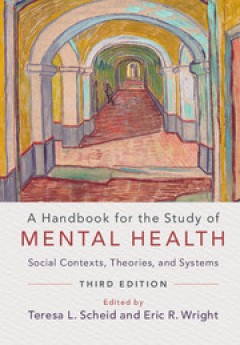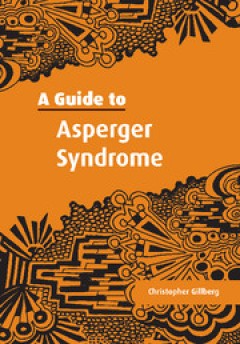Filter by

Religious Beliefs, Evolutionary Psychiatry, and Mental Health in America
This book provides a new perspective on the association between religious beliefs and mental health. The book is divided into five parts, the first of which traces the development of theories of organic evolution in the cultural and religious context before Charles Darwin. Part II describes the major evolutionary theories that Darwin proposed in his three books on evolution, and the religious, …
- Edition
- 1
- ISBN/ISSN
- 978-3-319-52488-7
- Collation
- Kedokteran
- Series Title
- Religion, Spirituality and Health: A Social Scientific Approach
- Call Number
- 617

Understanding Other-Oriented Hope An Integral Concept Within Hope Studies
This Brief integrates the literature and research on other-oriented hope. It discusses the position of other-oriented hope as one manifestation of the broader attribute of other-interest and argues the importance of other-interest in well-being. The Brief examines definitions and attributes of other-oriented hope, based upon theoretical and empirical understandings of hope more generally. There…
- Edition
- -
- ISBN/ISSN
- 978-3-319-15007-9
- Collation
- -
- Series Title
- -
- Call Number
- -

Reconceptualising Agency and Childhood : New perspectives in Childhood Studies
By regarding children as actors and conducting empirical research on children’s agency, Childhood Studies have gained significant influence on a wide range of different academic disciplines. This has made agency one of the key concepts of Childhood Studies, with articles on the subject featured in handbooks and encyclopaedias. Reconceptualising Agency and Childhood is the first collection …
- Edition
- -
- ISBN/ISSN
- 9781317524410
- Collation
- 314 halaman
- Series Title
- -
- Call Number
- 150 REC

A Handbook of Wisdom Psychological Perspectives
A topic ignored in mainstream scientific inquiry for decades, wisdom is beginning to return to the place of reverence that it held in ancient schools of intellectual study. A Handbook of Wisdom, first published in 2005, explores wisdom's promise for helping scholars and lay people to understand the apex of human thought and behavior. At a time when poor choices are being made by notably intelli…
- Edition
- -
- ISBN/ISSN
- 9780511610486
- Collation
- -
- Series Title
- Cambridge Handbooks of Psychology
- Call Number
- -

A Handbook for the Study of Mental Health
With chapters written by leading scholars and researchers, the third edition of A Handbook for the Study of Mental Health provides an updated, comprehensive review of the sociology of mental health. The volume presents an overview of the historical, social, and institutional frameworks for understanding mental health and illness. Part I examines the social factors that shape psychiatric diagnos…
- Edition
- -
- ISBN/ISSN
- 9781316471289
- Collation
- -
- Series Title
- -
- Call Number
- -

A Guide to Asperger Syndrome
Asperger syndrome is an autism spectrum disorder, usually with life-long consequences for social interaction and behaviour. The disorder is neurodevelopmental and symptoms appear in the preschool years. Individuals affected are often misunderstood and sometimes misdiagnosed when they apply for help. A Guide to Asperger Syndrome is an accessible 2002 handbook for all those touched by Asperger sy…
- Edition
- Ed. 1
- ISBN/ISSN
- 9780511543814
- Collation
- -
- Series Title
- -
- Call Number
- -

Group-Centered Prevention in Mental Health Theory, Training, and Practice
This book presents the concept of group-centered prevention and provides explanations and exercises for learning the method and teaching it to others. Detailed studies offer evidence for the continuing importance of prevention in mental well-being and distinguishes group-centered prevention from other group interventions by its ability to resolve incipient mental health issues and emotional pro…
- Edition
- Ed. 1
- ISBN/ISSN
- 978-3-319-19101-0
- Collation
- XVII, 165
- Series Title
- -
- Call Number
- -

A Guide to the Extrapyramidal Side-Effects of Antipsychotic Drugs
It is often implied that antipsychotic-induced extrapyramidal side-effects are irrelevant to modern psychiatric therapeutics, rendered historic by newer, better treatments. This myth arises from limited awareness of the depth and breadth of neurological disruption antipsychotics can mediate. This volume discusses the extensive clinical boundaries of acute dystonias, drug-induced parkinsonism, a…
- Edition
- -
- ISBN/ISSN
- 9781139149112
- Collation
- -
- Series Title
- -
- Call Number
- 615 OWE g

Handbook of Biobehavioral Approaches to Self-Regulation
How can people master their own thoughts, feelings, and actions? This question is central to the scientific study of self-regulation. The behavioral side of self-regulation has been extensively investigated over the last decades, but the biological machinery that allows people to self-regulate has mostly remained vague and unspecified. Handbook of Biobehavioral Approaches to Self-Regulation …
- Edition
- 1
- ISBN/ISSN
- 978-1-4939-1235-3
- Collation
- XIV, 421
- Series Title
- -
- Call Number
- 150 HAN

A Guide to the Extrapyramidal Side Effects of Antipsychotic Drugs
Antipsychotic drugs have revolutionised the management of major psychiatric disorders and the outcomes of those who suffer from them. They are, however, possessed of a range of adverse effects, amongst the most frequent and distressing of which are those resulting in disturbance of voluntary motor function. Extrapyramidal side effects - or E.P.S. - are still poorly recognised and not infrequent…
- Edition
- -
- ISBN/ISSN
- 9780511544163
- Collation
- -
- Series Title
- -
- Call Number
- -
 Computer Science, Information & General Works
Computer Science, Information & General Works  Philosophy & Psychology
Philosophy & Psychology  Religion
Religion  Social Sciences
Social Sciences  Language
Language  Pure Science
Pure Science  Applied Sciences
Applied Sciences  Art & Recreation
Art & Recreation  Literature
Literature  History & Geography
History & Geography